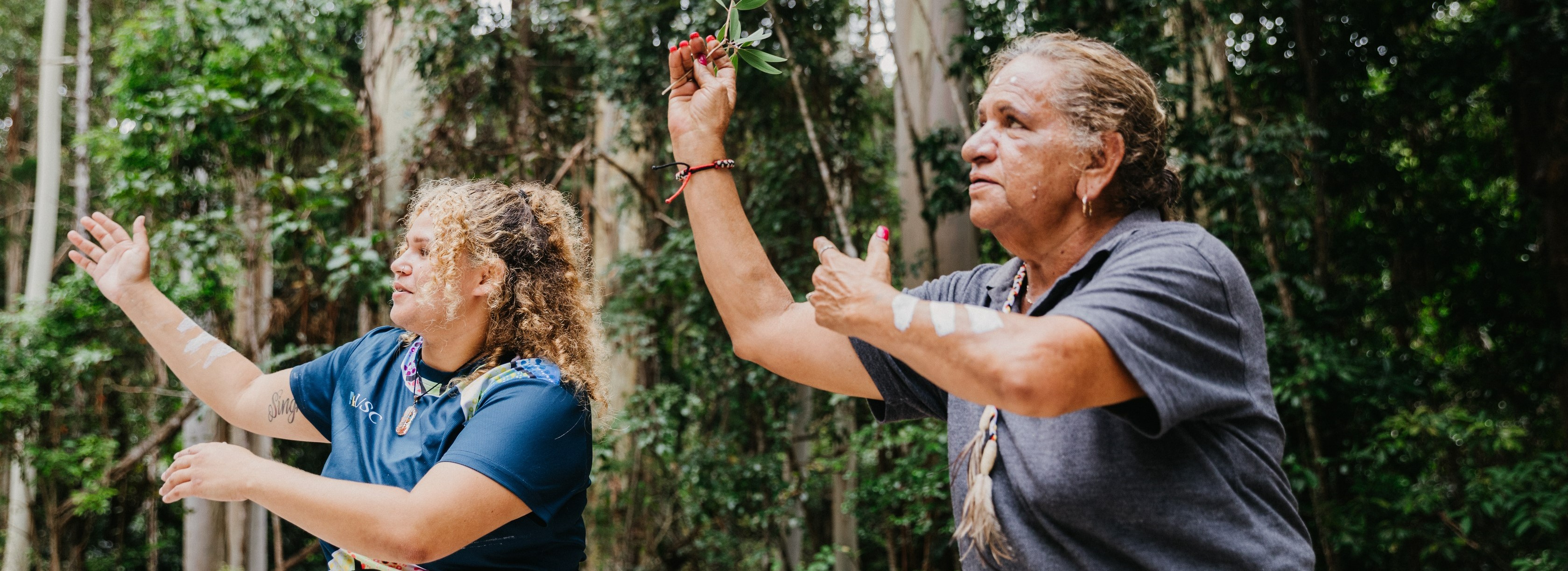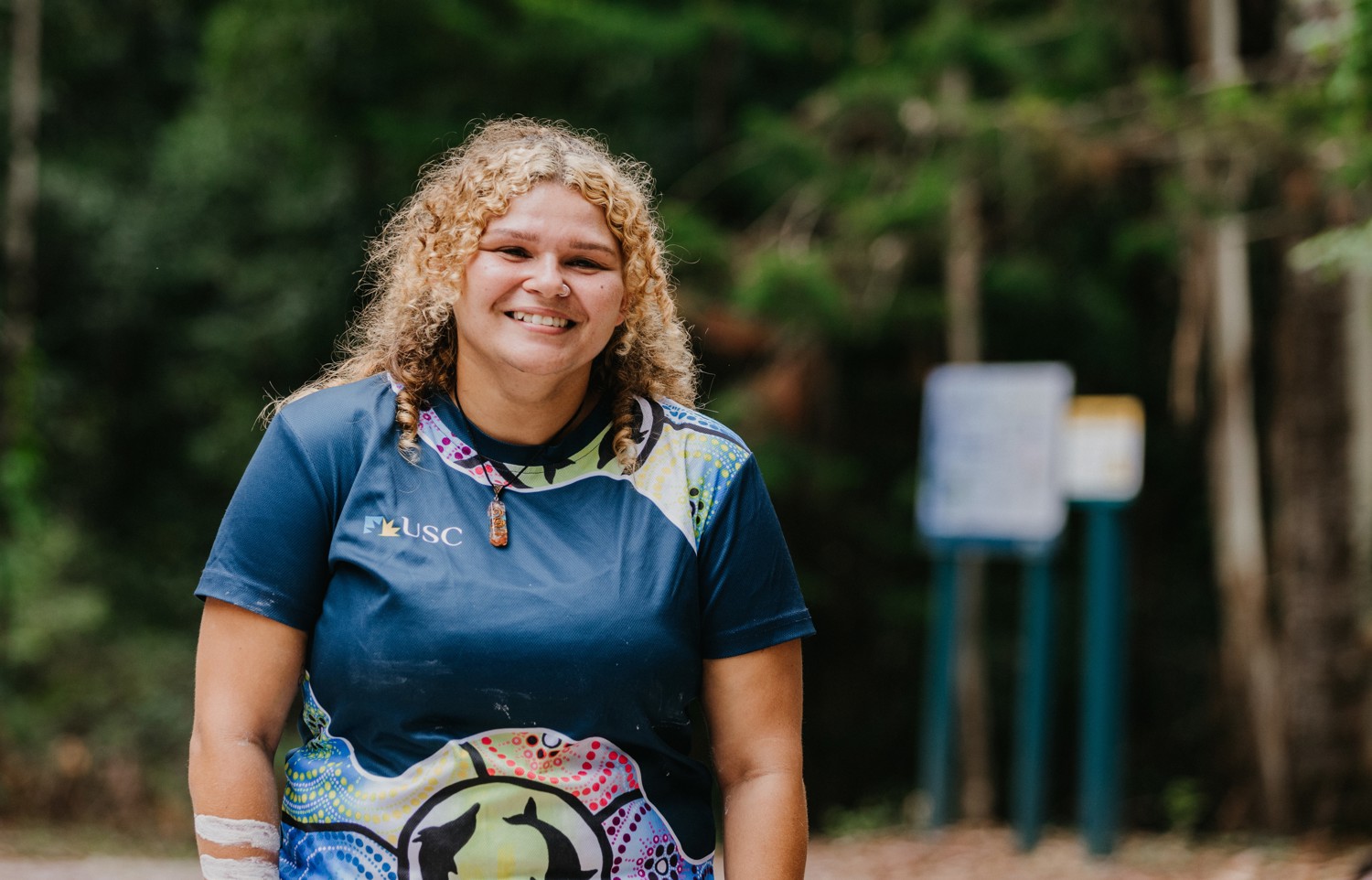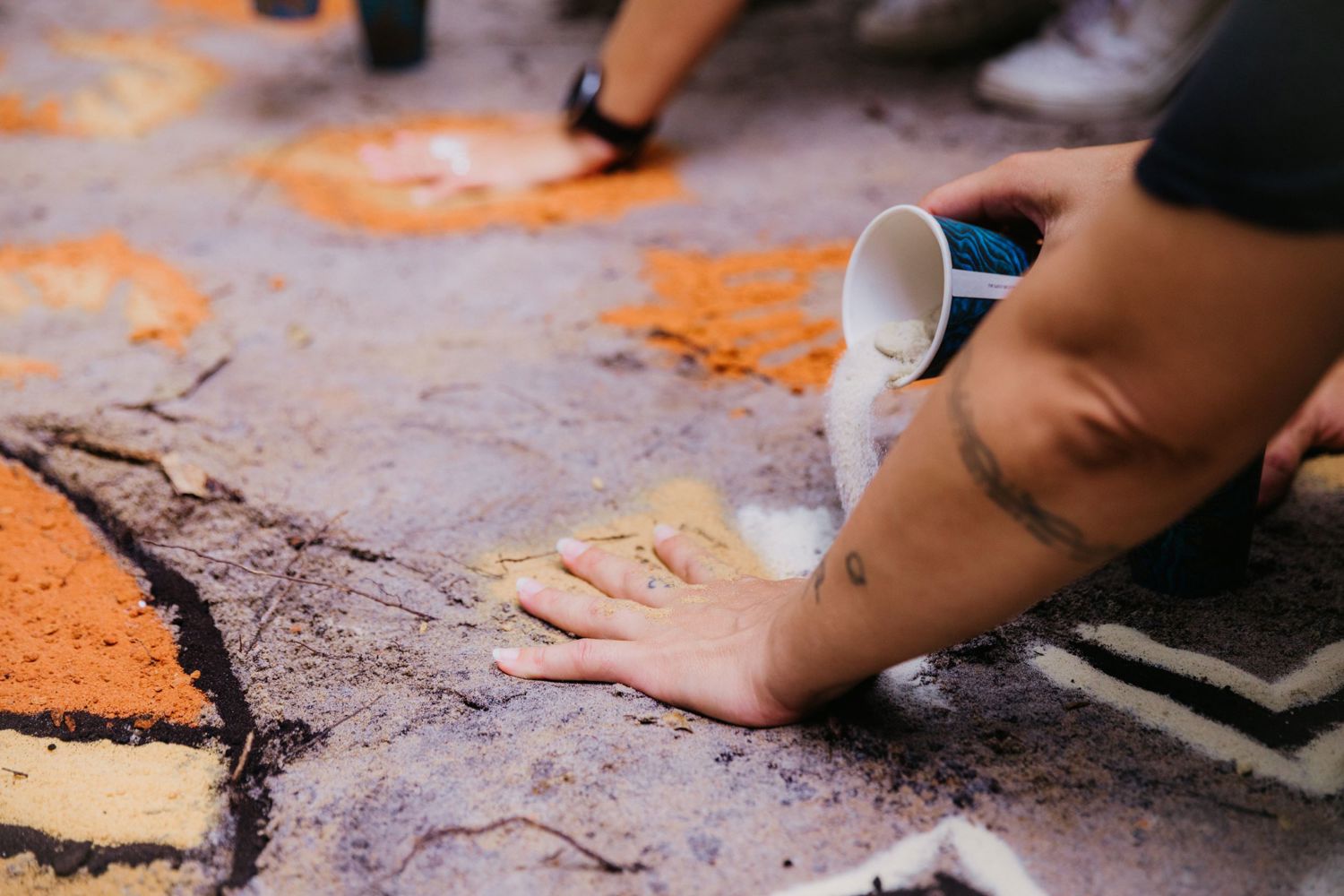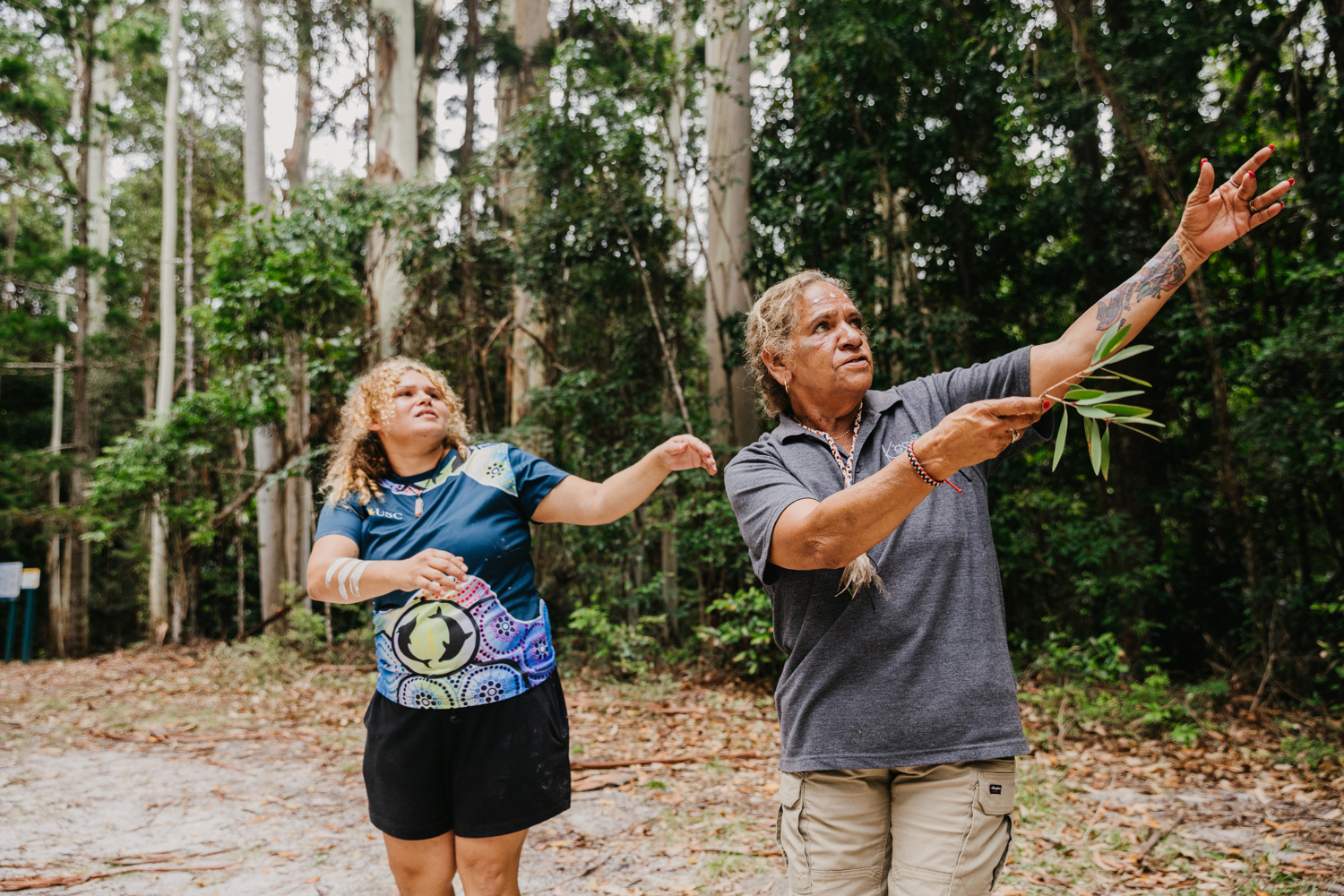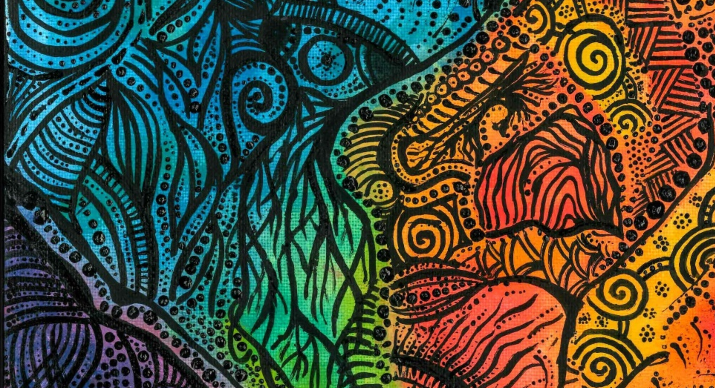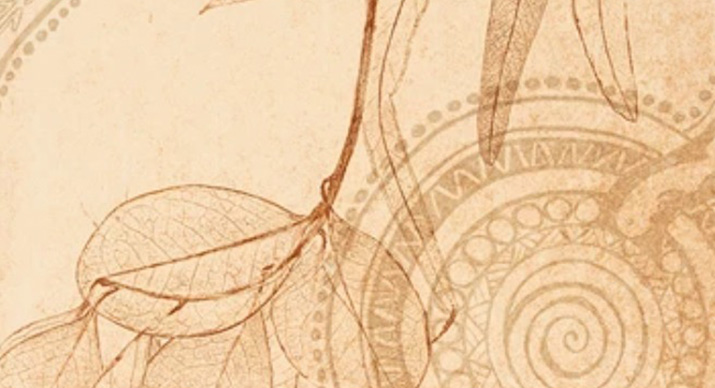As a young child, Cion Paiwan learnt language and dreaming stories on K’gari. Returning years later to the world’s largest sand island for fieldwork as part of her University of the Sunshine Coast studies, she found she is still guided by the Island’s spirit.
“I was taught language from such a young age, so I grew up with that connection to the land and understanding that you must be respectful to country. If you talk to it, it will talk back to you,” says Cion, an Indigenous artist and UniSC Environmental Science student.
“The Aunties and Elders would take us on culture camps to K’gari to learn how to live on country and the dreaming stories, and we would travel to sacred and significant areas to be taught song and dance.
“Being able to come back as a grown woman and do fieldwork as part of UniSC studies that are about helping preserve and understanding K’gari on a scientific level was extremely special to me.
“I felt like K’gari was proud of me for choosing the study path I have after all those years.”
“I felt like I was in the right place at the right time and that K’gari was proud of me for choosing the study path I have after all those years.”
Cion was on the island with a group of UniSC Environmental Science and Education students taking part in the University’s K’gari field studies.
With K’gari considered one of the world’s most outstanding natural wonders, with a Butchulla history dating back more than 40,000 years, the field activities are a unique mix of science and Indigenous knowledge and practices.
As well as opportunities to research rare ecosystems and complex, evolving landscapes, the Island’s traditional owners also deliver a cultural exchange and knowledge sharing as part of the experience.
"A highlight of my studies is being able to have the questions about the environment and nature answered – from plants, animals, rocks and shells and the climate – as I have always been curious about the world around me,” said Cion.

Bachelor of Environmental Science
Help businesses and governments make informed decisions about how to manage natural ecosystems in this undergraduate course on environmental science.
'Listening to the land and animals’
“Having a strong connection to culture and country keeps me steady on my journey."
Cion’s goal is to turn the knowledge and experience gained though her studies into a career in environmental science that has caring for country at its core – but that wasn’t always her plan.
“I initially wanted a career caring for community but taking part in a Green Army project a few years ago, cleaning up wetlands and significant forest from invasive species and revegetation of native plants in the Townsville and Herbert region, changed my perspective.
“I realised that to care for community, you must care for country, so I signed up to study environmental science,” says Cion, who grew up on Butchulla country and descends from Jarowair peoples in western Queensland and Panai peoples in the western Torres Strait.
“It doesn’t matter if you are Indigenous or non-Indigenous. It is a human thing. We all need to reconnect and immerse ourselves into nature, talking to the land and the animals. And we need to be there for each other."
When she graduates, Cion plans to create and implement community-based education and training programs in conversation that immerse both western science and traditional ecological knowledge.
“Having a strong connection to culture and country, for me personally, has kept me steady on my journey. Doing this really builds up mental strength.”
K'gari magic
Perhaps it was the spirit of K’gari working its magic, but the UniSC’s field trip island allowed Cion to reconnect with the same Butchulla Aunty who taught her language on the island many years ago.
Aunty Joyce Bonner was helping to lead UniSC students on a Butchulla cultural immersion tour that helps to embed First Nation's knowledge into the K'gari field studies course.
Recognised as one of Australia’s most distinguished First Nations linguists, Aunty Joyce was last year awarded UniSC’s highest honour – an Honorary Doctorate, for her work to embed Butchulla language in education initiatives across Australia– link here.
Life, art and nature intersect
“For me, it’s knowing and respecting that every animal, plant and being has their place and role to play, to ensure the cycle of life continues and balance within nature is kept.”
Art is a defining part of Cion’s life, and it’s a medium she uses to share her message of the importance of caring for the environment.
She was one of six First Nations artists commissioned to create an original, limited-edition etching for UniSC Moreton Bay’s foundation building. Her art designs have also been chosen for the cover of UniSC’s student diary.
“My print design at the Moreton Bay campus depicts the inseparability of the land and culture for our people.
“I am of both Aboriginal and Torres Strait Islander descent. I hold strong connections with both the land and sea which forms the basis of my cultural identity."
Sharing her story
“You can strive, learn and gain experiences that can change your life for the better, and there is a ripple-down effect to other people you may cross paths with.”
Based at UniSC’s Hervey Bay campus, Cion has also embraced the opportunity to become a student ambassador with UniSC’s Buranga Centre team.
She works to inspire and encourage other young Aboriginal and Torres Strait Islander people to connect with country and culture and explore university as a pathway to achieving their full potential.
“Higher education is important to me because both of my grandmothers were legally not allowed to go past Grade 6, therefore I don’t want to waste my opportunity to access an education,” she said.
“While my mother didn’t go to Grade 12, she later obtained a Bachelor when I was young, so I got to see her use lived experience and higher education to embrace copious opportunities.
“She set a really high standard of getting out there, educating yourself and networking in order to travel along your path, with the right tools to do so.”
Her main message to First Nations students she meets at local schools and on campus through her ambassador role is “just have a go” at higher education.
“Challenge yourself to do things you’ve never done or experienced before to help broaden your perspective on the world for your own personal and professional development,” she said.
“I think the biggest barrier to studying is your own self-doubt – whether you may be smart enough or cool enough to go to university, or what people may think or say about you, especially if you are the first in your family to take on higher education.
“But once you’re in and you’re starting to enjoy the experiences, you start to accept that you do belong in these spaces.
“You can strive and learn and gain experiences that can change your life for the better, and there is a ripple-down effect to other people you may cross paths with.”
Her key piece of advice is to make use of the support available from UniSC’s Student Services and the Buranga Centre team.
This includes help on what to study and how to apply, and access to academic mentoring, learning spaces and support services in a culturally supportive environment for Aboriginal and/or Torres Strait Islander students.
“Help is there so you aren’t left feeling helpless when things get difficult,” she said.
There are also UniSC scholarships and government loans and assistance that can help fund study dreams.
“Always put in your scholarship applications as they can be a life saver and have helped me many times to be able to get the necessities and ease that stress,” Cion said.
Media enquiries: Please contact the Media Team media@usc.edu.au

